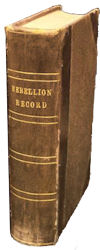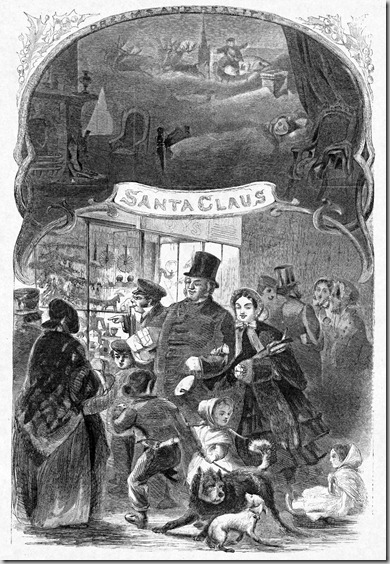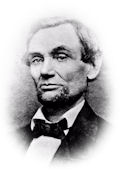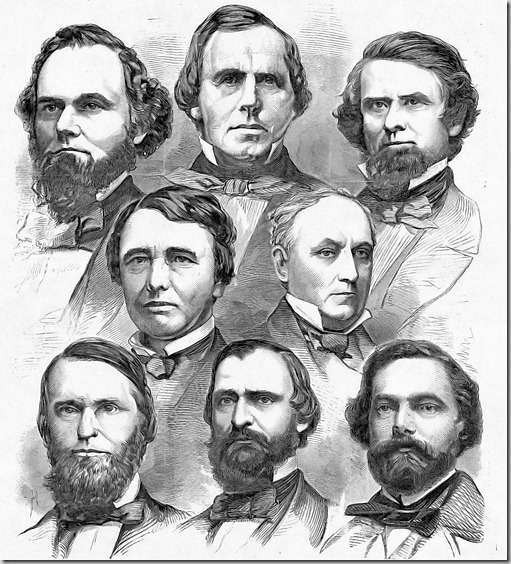—Senator Andrew Johnson was burned in effigy at Memphis, Tenn., to-day.
—There was a secession meeting in Ashland Hall, in Norfolk, Va. Disunion speeches were delivered by Colonel V. D. Grover and General John Tyler. The speeches were enthusiastically applauded.—N. Y. Times, Dec. 23.
—Senator Crittenden, of Kentucky, made a speech this evening to the citizens of Washington, in which he advocated Union and the laws.
—This evening the New England Society at New York celebrated the anniversary of the landing of the Pilgrims, by a dinner, toasts, and speeches. The reading of the sentiment, “The American Union; it must and shall be preserved,” was received with unbounded applause. Among the speakers were the Vice President elect and Senator Seward. —(Doc. 4.)
—The Charleston Mercury insists that the President will not reinforce the garrison at Fort Moultrie. “The reinforcement of the forts at this time and under present circumstances,” says that paper, “means coercion—war.—When the forts are demanded and refused to be delivered up to those in whom is vested the title of eminent domain, and for whose protection and defence alone they were ceded and built up; and when, the Federal Government showing a hostile purpose, it shall become necessary and proper for us to obtain possession, then it will be right for the world and Black Republicanism to expect that the State, by her authorities, will move in the premises. The people will obey the call for war, and take the forts.”
—Governor Buckingham, of Connecticut, in his proclamation for a day of fasting and prayer, urges upon the citizens of that State the propriety of a petition that the country may be carried through this crisis “in such a manner as shall forever check the spirit of anarchy, bring peace to a distracted people, and preserve, strengthen, and perpetuate our national Union.”










